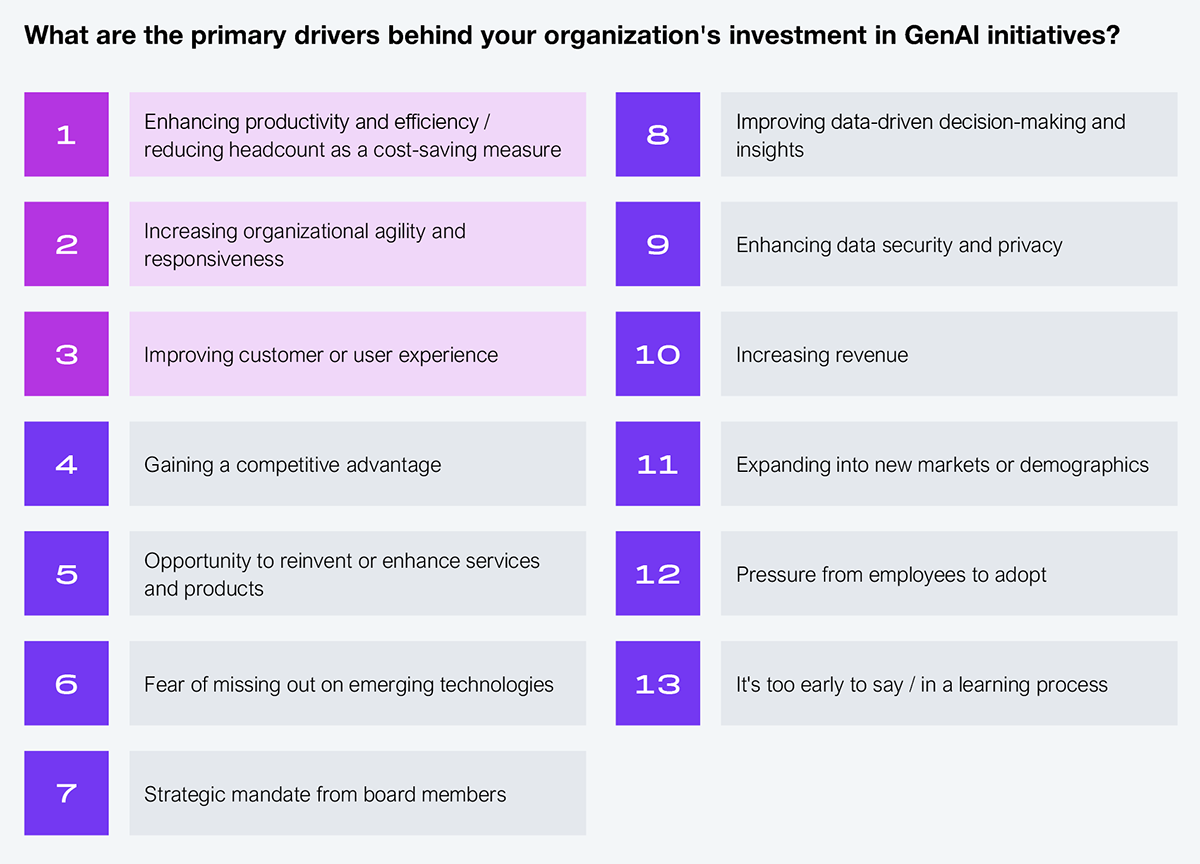Traditional business models are reaching their limits as customer expectations evolve at an accelerated pace. Enterprises across industries—finance, healthcare, retail, and beyond—are turning to GenAI, automation, and digital-first experiences to drive productivity, engagement, and new revenue streams. The sports world is no exception—Tomorrow’s Golf League (TGL) is proving that AI and immersive technology can transform a sport and an entire industry.
Led by Tiger Woods, Rory McIlroy, and Mike McCarley, an ex-NBC Golf executive, TGL is not only modernizing golf but also serving as a case study for how AI-driven ecosystems are future-proofing legacy industries.
TGL is redefining how sports are played, consumed, and monetized. Moving away from traditional 18-hole formats, TGL compresses matches into a two-hour, AI-powered spectacle played in a controlled arena environment. Players take shots into a 64 x 53 ft. Full Swing simulator, blending real and virtual golf, while short-game play happens on the GreenZone, an AI-adjusted surface that uses 600 actuators to mimic actual terrain.
TGL integrates real-time analytics, predictive AI models, and immersive broadcast technology to enhance engagement and optimize performance. KPMG Performance Insights delivers real-time analytics on shot selection, ball speed, and player strategy, while Samsung’s high-resolution display technology enables AI-enhanced graphics for an interactive viewing experience. CapTech’s data-driven competition framework powers real-time shot tracking, scoring, and in-depth audience analytics, ensuring the league maximizes engagement.
But AI is not just optimizing gameplay—it’s monetizing engagement. TGL’s revenue model leverages several innovations:
The most successful sports organizations are no longer just leagues—they are becoming tech-driven entertainment platforms that monetize AI-powered engagement. The NBA, through NBA Top Shot, has transformed game highlights into blockchain-based digital assets, generating more than $1 billion in sales and redefining what digital sports ownership means. Formula 1 racing, under Liberty Media, has evolved into a data-driven entertainment platform, giving fans access to real-time telemetry and customizable race experiences via F1 TV Pro. The NFL’s partnership with Nickelodeon creates a fresh digital sports universe, engaging younger fans through an immersive, relatable broadcasting alternative.
European soccer clubs such as Manchester City are leveraging AI to optimize performance and expand globally. They also use data analytics to identify market opportunities and create a scalable sports conglomerate. These examples illustrate how sports organizations are no longer simply leagues but tech-driven entertainment platforms leveraging AI for audience engagement and revenue growth.
The driving force behind these transformations aligns with the primary drivers of GenAI investments across industries—enhancing efficiency, increasing agility, and improving customer experience (see Exhibit 1). AI is no longer an optimization tool; it is the foundation for entirely new business models that legacy industries must embrace to remain competitive.

Sample: 553 survey participants
Source: HFS Research, 2025
TGL’s transformation underscores a broader enterprise reality: No single company can drive AI-powered reinvention. Today’s most successful enterprises are shifting from siloed operations to ecosystem-driven transformation, where multiple partners collaborate to create new sources of value. Winning in this new landscape requires building an AI-powered partner ecosystem, blurring the lines between sports, technology, and entertainment.
An interconnected ecosystem of technology partners powers TGL’s success:
This shift aligns with the OneEcosystem framework, which HFS Research has identified as the next evolution of enterprise strategy.
TGL is proving that enterprises in traditional industries must embrace ecosystem-driven transformation—or risk irrelevance. Enterprises must leverage AI-driven analytics, real-time engagement, and new monetization strategies. The same forces disrupting golf today will soon redefine finance, healthcare, retail, and beyond—and enterprises must act now to remain competitive.
Register now for immediate access of HFS' research, data and forward looking trends.
Get StartedIf you don't have an account, Register here |
Register now for immediate access of HFS' research, data and forward looking trends.
Get Started